Latin America Update, March 2014
In 'Latin America Update' Gateway House lists some of the important events in Latin America over the past month
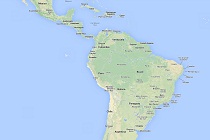 Courtesy: Google Maps
Courtesy: Google Maps
In 'Latin America Update' Gateway House lists some of the important events in Latin America over the past month
 Courtesy: monotrilho|/Flickr
Courtesy: monotrilho|/Flickr
With elections scheduled in seven Latin American countries, 2014 will be a year of significant political developments in the region. As we enter 2014, Gateway House examines the important events that defined Latin American politics and economy in 2013
 Courtesy: generalising/Flickr
Courtesy: generalising/Flickr
The India-Japan alliance needs to be viewed through a prism broader than that of "containing" China, and by treating the Indian and Pacific oceans as a single entity. Such an alliance has the potential to strengthen the geopolitical security of India and Japan, along with that of all their allies and associates
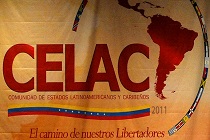 Courtesy: Martinmartin/WikimediaCommons
Courtesy: Martinmartin/WikimediaCommons
Latin America is witnessing an exponential rise in regional integration of business houses. The resource-rich nature of most Latin American economies has led to an inward concentration of investment, which makes it an extremely interesting prospect for Indian investors.
The scope for any process on nuclear talks with Iran to founder on distrust, misunderstanding and political in-fighting in both Tehran and Washington remains formidable. Equally disturbing are the wider political realities. Can the upcoming talks in Istanbul launch a process that can, over time, lead to agreement?
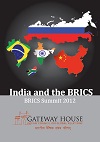 Courtesy: Gateway House
Courtesy: Gateway House
The BRICS nations account for 45% of the world population, 25% of global GDP and 50% of recent global growth, and have the potential to create a future model. In 2012 Gateway House prepared a report that looks at the future of India and its BRICS counterparts
 Courtesy: nazeah/Wikimediacommons - Ramesh Lalwani/Flickr
Courtesy: nazeah/Wikimediacommons - Ramesh Lalwani/Flickr
The year 2011 saw various events - the Arab Spring, anti- corruption protests, Europe's sovereign debt crisis - transform countries and reshape the world order. Gateway House takes a look at what these events mean for India, and presents India's top foreign policy cheers and jeers for the year.

Amidst myriad country groupings that already exist – BRICS, IBSA, APEC, SCO and many others – a new initiative in the Pacific is looking to integrate more powerful countries to form a multilateral free trade agreement – the Trans Pacific Partnership. How important is this towards the reshaping of trade and power?
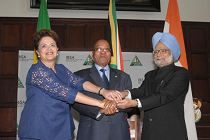 Courtesy: PMO
Courtesy: PMO
India and Brazil’s increasing engagement in Africa is a clear sign that both countries are embracing their new roles as global diplomats. By joining forces to bolster Africa’s food security, they have the chance to break ground on a tangible agenda that could have a far-reaching impact on matters of global concern
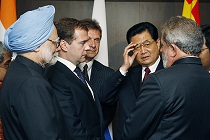 Courtesy: www.kremlin.ru/Flickr
Courtesy: www.kremlin.ru/Flickr
In a reversal of historical roles, the BRICS nations may be coming to Europe’s rescue. During the Asian Financial Crisis, the International Monetary Fund (IMF) introduced structural adjustments in return for IMF loans, and many institutions and individuals went bankrupt. Will it be any different now?